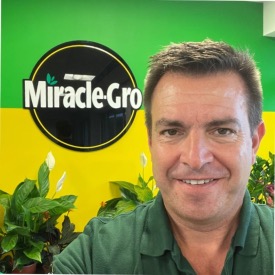 Colin Stephens, Managing Director for Evergreen Garden Care UK, has today launched an open letter calling for inherent change in the industry. He says: "DEFRA owes it to gardeners up and down the country to make the Responsible Sourcing Scheme (RSS) industry protocol, ahead of the 2024 peat ban."
Colin Stephens, Managing Director for Evergreen Garden Care UK, has today launched an open letter calling for inherent change in the industry. He says: "DEFRA owes it to gardeners up and down the country to make the Responsible Sourcing Scheme (RSS) industry protocol, ahead of the 2024 peat ban."
Stephens is inviting key industry players to join EGC in making the RSS a trusted stamp of both assured environment standards and product quality. This journey is one that must be started without delay, to ensure that, as peat-free growing media continues to phase in, to ensure a more sustainable and transparent horticulture industry. The RSS’ mission is parallel to EGC’s own when it comes to peat-free (to create responsibly sourced composts and soil mixes which lower potential impact on the environment), and Stephens is pushing to make this an industry-wide stance.
The full letter can be read below:
Dear DEFRA,
My name is Colin Stephens, I am the Managing Director for Evergreen Garden Care UK, one of the biggest manufacturers of compost in the UK.
Consumers are being blindsided. Choosing a responsibly sourced compost that genuinely has a low impact on the environment – and is good quality - isn’t clear-cut. In fact, it’s pretty murky. Things need to change. The growing media industry needs to change.
The peat ban is a step in the right direction. It will help protect rare and precious peatlands which cover just 3% of the world's land area yet hold almost one-third of soil carbon. Not to mention, conserving the habitats of hundreds of wildlife species. But more needs to be done in the journey toward more sustainable ingredients. Peat content isn’t the only factor of compost manufacturing that we need to worry about.
Peat-free composts are composed of blends of various ingredients, including composted bark, coir, and green compost, to ensure efficacy without peat. Historically, peat was used as a consistent component with reliable quality, but due to the multiple elements in peat-free compost mixes, there is more scope for variability. The introduction of the peat ban brings challenges to quality assurance, eroding the previous assurance consumers had regarding the quality of their compost. There is no longer a guarantee that the compost you purchase will be effective in growing plants.
The good news is that we already have the answer to the problem: the Responsible Sourcing Scheme independently assesses the environmental impact of compost and gives it a score from A (lowest environmental impact) to E (highest impact). The rating is rigorous and evidence-based. Everything that goes into creating the raw materials for peat-free compost is put under the microscope, from the use of energy and water to the way people are treated and how biodiversity is cared for.
And not only that, but the Responsible Sourcing Scheme already has built into its foundations a requirement for quality: multipurpose compost cannot receive its sustainability rating without also being a viable growing medium. This might sound obvious but could be the answer to what we’re asking – as now, purchasing compost comes with no guarantee of performance.
The Responsible Sourcing Scheme (RSS) represents excellence. It should become industry protocol.
Yet in the solution also lies the problem. The use of the RSS logo is voluntary and has no government regulation. Any business in the industry – no matter what their ethics or standards – can join the scheme and use the logo on their packaging, even with scores unverified or unpublished. This leads to confusion for the consumers, who already only have a limited understanding of the challenges, and whitewashing for the environment. Inferior compost is masquerading as the best (and most eco-friendly) on the market.
I want to see the RSS given the respect that it deserves, for DEFRA to make the standards legislation and for all players in the industry to ensure their product is up to scratch.
The RSS must be a trusted stamp of both assured environment standards and product quality. In the dawn of a peat-free world, consumers shouldn’t have to accept poor-quality substitutes – especially not ones pretending to be the best. As an industry, we owe it to consumers to be transparent about whether we have the formula right or if we’re still working on it. It’s all about progress in the journey to a better world.
I hereby call on our peers and industry counterparts to join us on a mission to create a more sustainable and transparent horticulture industry, without delay.
Signed,
Colin Stephens